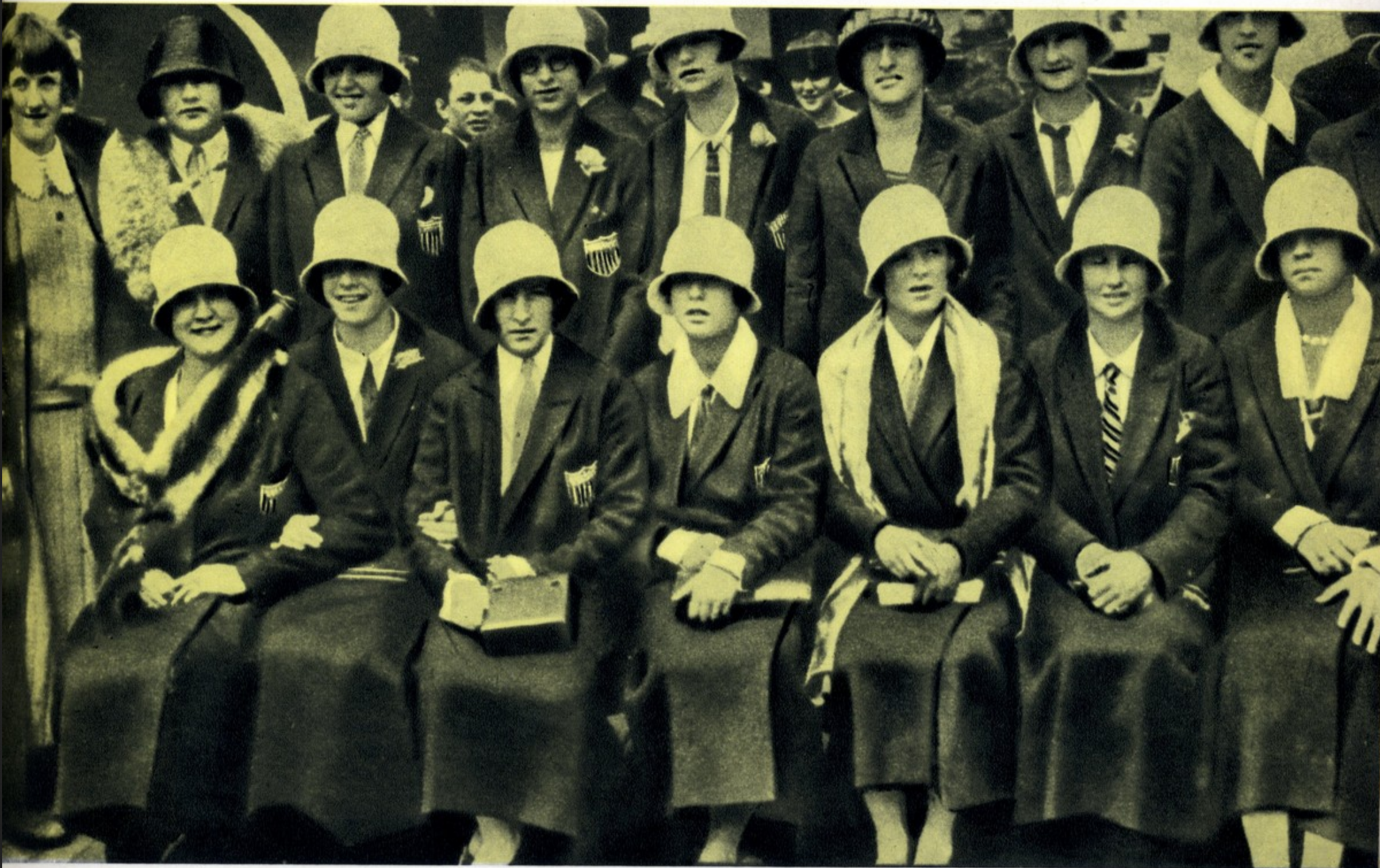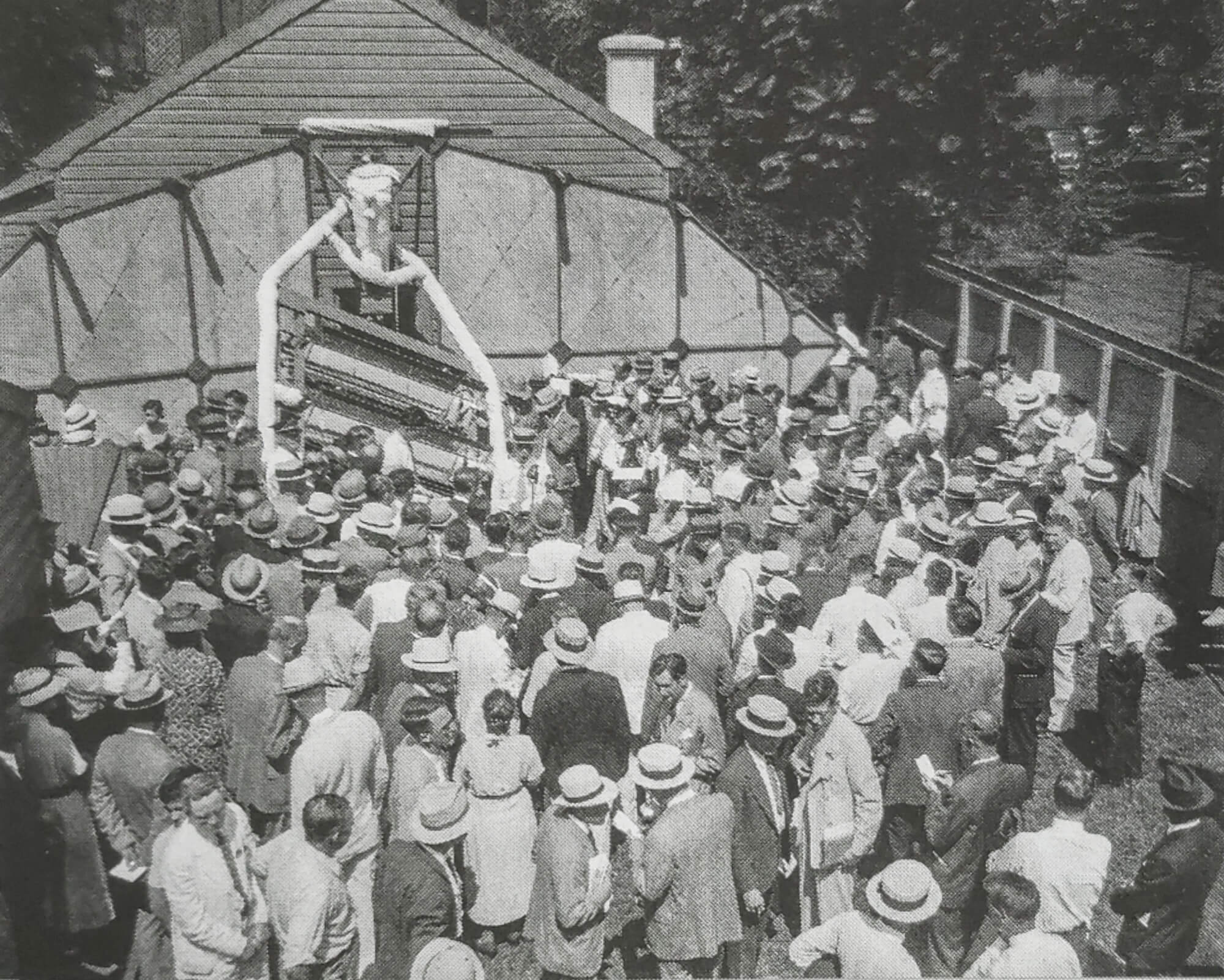Energy Transitions, the Olympic Games and rewarding progress
What have energy transitions and the Olympic Games got in common? More than you might imagine.
In 1980 the Mayor of Munich gave the World Energy Congress the nickname of the “Energy Olympics”. This strapline highlighted the fully international nature of the delegates and the colossal task of delivering sustainable energy transitions across the world.
As we look forward to the 33rd Olympic Games, which starts this weekend in Paris (coincidently, the last time the Games were in the French Capital was in 1924, the same year of our first World Power Conference), it’s a good time to draw some parallels between these Olympian endeavours and, in particular, reflect on the so-called Race to Zero.

The swimmers team that represented the USA in the 1924 Paris Olympic Games. Photo Credit: International Olympic Committee
The Race to Zero was launched at the Glasgow COP26 conference to accelerate the pace of decarbonisation in response to the climate change emergency, and specifically to meet the goals of the UNFCCC Paris Agreement.
Decarbonisation is not, however, a 100m solo sprint. It requires a team effort - an intergenerational pentathlon relay which takes place in multiple places, at multiple paces, across generations and using many different tools and skills.
Success depends less on specialisation and competition, than on flexibility and the effectiveness of many and new ways of collaborating with others who are very different to us. There is not a single track, but multiple fields and lanes – net zero, clean and just, circular, zero fossil, etc.
To improve, we manage what we measure. A truly successful Paris Olympics, however, cannot be reduced to one single metric – e.g. the numbers of runners, records broken or revenues generated. Similarly, managing successful global energy transitions – to modern energy access and away from fossil fuel emissions - requires an integrated performance framework and engagement and mobilisation of those beyond the stadium
Today, all signals point to an overshoot of 1.5oC by 2050. Furthermore, the Paris Agreement, even if achieved, it is not the final destination nor enough to secure energy for billions of better lives across the world.
For a century the World Energy Council has connected the dots between energy and sustainable development. And just as the Olympic Games has evolved with new sports added and dated ones dropped, the connections between energy and sustainable development continues to coevolve.

The 3rd World Power Conference, Detroit USA. Photo Credit: World Energy Council
The Tokyo Olympics, in 2021, showcased growing interests in hydrogen-based fuels as a new global energy transition vector – we referred to them at the time as ‘The Hydrogen Games’! Since then, energy security and affordability concerns have returned to entre stage. New demands for resilience and justice are shaping decarbonisation pathways in all regions. We might anticipate the Paris Olympics will spark interests in new electrification solutions.
Where better energy flows, civilisation flourishes.
The World Energy Council recently launched a set of Centennial Awards, in recognition of outstanding contributions to world energy developments. The inaugural awards – our Gold Medals - were presented at the start of our 100th anniversary ’Energy Olympics’: the 26th World Energy Congress, themed Redesigning Energy for People and Planet which took place in Rotterdam in April:
The Global Energy Transition Impact Award is awarded to H.E. Dr Sultan Ahmed Al-Jaber, COP28 President, UAE Special Envoy for Climate Change, and Minister of Industry and Advanced Technology, for achieving a historic COP28 agreement known as the UAE Consensus, and for the added achievements of launching Net Zero energy transition alliances involving multiple energy sectors.
The Energy Systems Luminary Award for significant thought leadership contributions is awarded to Distinguished Professor Emeritus in the Faculty of Environment at the University of Manitoba Vaclav Smil in recognition of his significant contributions to advancing energy literacy.
The Humanising Energy Award is bestowed on Barefoot College International for achieving millions of smaller steps in making faster, fairer and more far-reaching energy transitions happen.
The World Energy Visionary Leadership Award for shaping the future of energy for the common good is bestowed posthumously on Daniel Nicol Dunlop, pioneer of the first World Power Conference in 1924 and the de-facto founder of the World Energy Council.
We also recognised the impactful work of our global community network and our Member Committees were doing across the globe with Community Awards for:
Championing Strategic Communities (Italy for Mediterranean Collaboration)
Convening Power for Good (Uruguay for Women in Energy)
Driving Impact & Amplification (the UAE for Scenario Planning to 2050) and;
Seizing Centenary Opportunities (Chile – for Kids in Energy & Sustainability).*
What awards do you think would help us all strive for better energy and energy transitions performance going forward?
The World Energy Council wishes all athletes and all countries a successful Games in Paris!
* The following member committees were also recognised at the Rotterdam World Energy Congress:
Lebanon | The Committee operates as a platform for fostering vibrant public-private partnerships aimed at addressing Lebanon's energy challenges and promoting sustainable energy solutions.
Romania | For their "Energy and Geostrategy". This publication linked event addresses the geostrategic panorama of energy, emphasising the cross-cutting nature of energy issues.
India | For the development of the National Trilemma Index, tracking the progress on the Trilemma dimensions across States in India.





